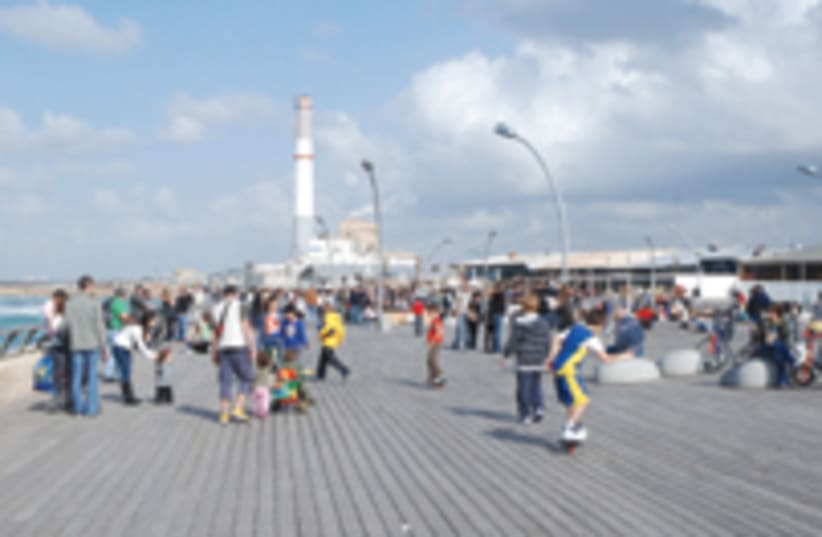On a warm, windy day in April 1909, 66 families gathered on the sand dunes on the Mediterranean seashore, just north of the ancient Arab city of Jaffa, to draw lots for the plots of land that would form the first city in modern history with a Jewish majority.
Could they have dreamed that their small, neatly laid-out streets would develop into a modern metropolis, with a population of nearly 400,000 spread over some nearly 52 square kilometers (20 sq. miles)? Could they have imagined that their little town would dev
elop into the Dan Bloc, Israel's megalopolis, with over 3.2 million residents?
Did this small group of people, which included one watchmaker, two barbers and a central governing committee composed of five men, envision that they were creating modern Israel's cultural, economic, and communications centers? As they counted their liras and squabbled over property rights, could they see that they were laying the foundations for Israel's most expensive city, home to the country's wealthiest families, with a 2008 municipal budget of nearly 4.5 billion shekels ($1.1b.) and an average income that is 20 percent above the national average?
As they tended their small gardens and courtyards, did they know that the Zionist vision of concrete, steel, glass and cement would soon over-run the flowing sand dunes and open spaces? Committed to the Zionist enterprise and the Jewish nation, could they foresee that one day Tel Avivians would come to think of themselves as a state-within-a-state; an island of laid-back sanity in a sea tossed by passionate, messianic beliefs; a live-and-let-live bubble in a country that holds to ancient truths and apocalyptic visions?
Those founding families had wanted to create the first Hebrew-speaking city in history, rebuilding the land as they revived the language. They dreamed of creating a Jewish city based not on rabbinic authority but on national motifs as they poured new meaning into heroic holidays such as Purim and Hanukka. Could they also have known that they would be creating a modern, open Mediterranean city, with a pulsing nightlife and vibrant performance culture?
Humid and sweating, energetic and throbbing, Tel Aviv likes to call itself the nonstop city, proud of its self-proclaimed decadence, materialism and hedonism. Jerusalem is a city rooted in past, and Israel's future may lie in the Negev and the Galilee, but Tel Aviv is the city of now, of instant gratification.
This spring, Tel Aviv marks its centennial. But even if it is already 100 years old, compared to its ancient sister, Jerusalem, Tel Aviv is merely an adolescent - frenetic, sometimes obsessed with itself, ever-concerned about its appearance and identity, intolerably cool, often blind to its weaknesses and rarely introspective.No great city is monolithic or monochromatic, and there are, of course, many Tel Avivs. The city that never sleeps is modern, cosmopolitan and open, ready to try anything, its face turned to the Mediterranean sun and even further, to the shores of Manhattan. Parts of Tel Aviv form "the white city," with its gentrified Bauhaus and turn-of-the-century structures, recognized as world heritage sites by UNESCO and now restored to their original, modest dignity.
And then there are the market places, sellingeverything from exotic fruits to knock-off logo watches. Tel Aviv is also the depressed neighborhoods, where poverty and social disadvantage breed despair and alienation. And southern Tel Aviv, where tens of thousands of foreign workers, many of them here illegally, live in constant fear of deportation as they work in the homes and construction sites in the other Tel Avivs.
But there is also the Tel Aviv of Mesilah, established by the Tel Aviv municipality and run by volunteers who care for the children of those workers and were the first in Israel to provide homes for the refugees from Sudan and Darfur.Comparing Tel Aviv to other cities, Israel's poet laureate Nathan Alterman once wrote, "There are prettier ones. But none share its beauty."
| More about: | United States, Nathan Alterman, Jerusalem, Tel Aviv |
